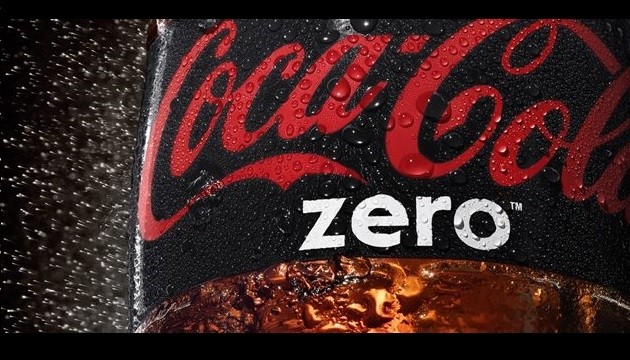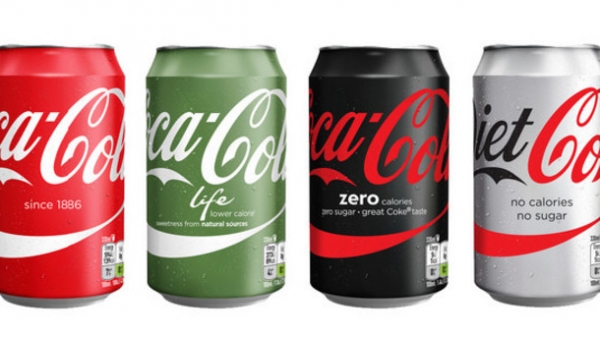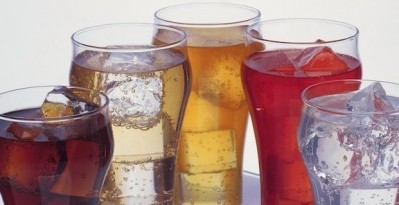Coca-Cola Enterprises: 'You're going to see low- and no-cal products become an even greater part of our business'

In its latest quarter the Coca-Cola trademark portfolio declined 3%, but Coca-Cola Zero continued to grow with volumes up 2.5%.
CCE, Coke’s anchor bottler in Western Europe (covering Great Britain, France, Belgium and the Netherlands among others) has pledged to lower calories across its beverage portfolio.
Coke Zero
Coke Zero launched in GB in 2006 and is now available in 140 countries.
It is sweetened by aspartame and acesulfame K, ‘for people who want the great Coke taste with zero sugar and zero calories.’
A ‘one brand’ strategy (which integrates Diet, Zero and Life varieties with its flagship Coca-Cola to boost the no- and low- sugar variants) was launched this year to help promote low- and no- calorie varieties. Although it is early days, the company believes the strategy is working.
EFSA on aspartame
In the earnings call for CCE’s Q2 results, analyst John Faucher from JPMorgan Securities observed the US is struggling with diet declines and negative media coverage of the drinks and sweeteners.
But John Brock, chairman and CEO, CCE, said the situation is different in Europe.
“I think one of the things that's helped us here is the very factual statement that the European Food Safety Authority made some 18 months ago, which is that aspartame is safe," he said. "And that's been a very meaningful statement for governments, for regulatory agencies and it's actually translated into some changes in consumer thinking.
“So do we have a group of people here who believe throughout all of our territories that there's some issues with non-nutritive sweeteners? And the answer is yes. I think broadly speaking, we're in a better position than in some parts of the world like the US. And broadly speaking again, our low-calorie and no-calorie products here, generally if we look at them over an extended period, are growing, which is encouraging.”
CCE has pledged to reduce calories across its beverage portfolio by 10% per litre by 2020, saying it wants to be ‘part of the solution to obesity.’
“As we look to the future, we think you're going to see low-cal and no-cal products becoming an even greater part of our business,” said Brock. “We've launched a pledge as part of a new sustainability program around calorie reduction per litre in our products over the next several years, a very significant reduction. And, again, the only way to get there is to have our low- and no-cal products grow.”
Hubert Patricot, executive vice president of the European Group, CCE, added: “We clearly see the diet colas or the light colas are the growth engine moving forward, driven especially by Coke Zero. And we think the current portfolio we have now - including Coke Life - is the right answer to the different shopper behaviour and attitude.”
The industry is turning to small pack sizes as a way to address calorie consumption per portion. Like The Coca-Cola Company, CCE is focusing on more packaging choice and in particular smaller pack sizes.
One brand strategy
This year the CCE has unified traditional Coca-Cola, Life, Zero and Diet together in a ‘one brand’ marketing strategy in all its markets.
Each version took on the same branding style, but with attributes (such as low calorie or zero sugar) highlighted on the front of pack. The colour coding (green for Life, for example) has been retained.
“We're excited about it because I think it's a way of really communicating trademark Coca-Cola in a more effective and a more efficient way across all four products and giving consumers choice,” said Brock. “It's early days. We rolled it out starting on May 12. But I think it's fair to say that we and The Coca-Cola Company are pleased with the results we've seen so far.”
Patricot added: “It's a very simplified and impactful choice between the four variants of The Coca-Cola trademark. And it’s too early to totally measure the impact with the household penetration, which is the objective, and with the sales in general, but we are pretty encouraged by the beginning and the first feedback.”





